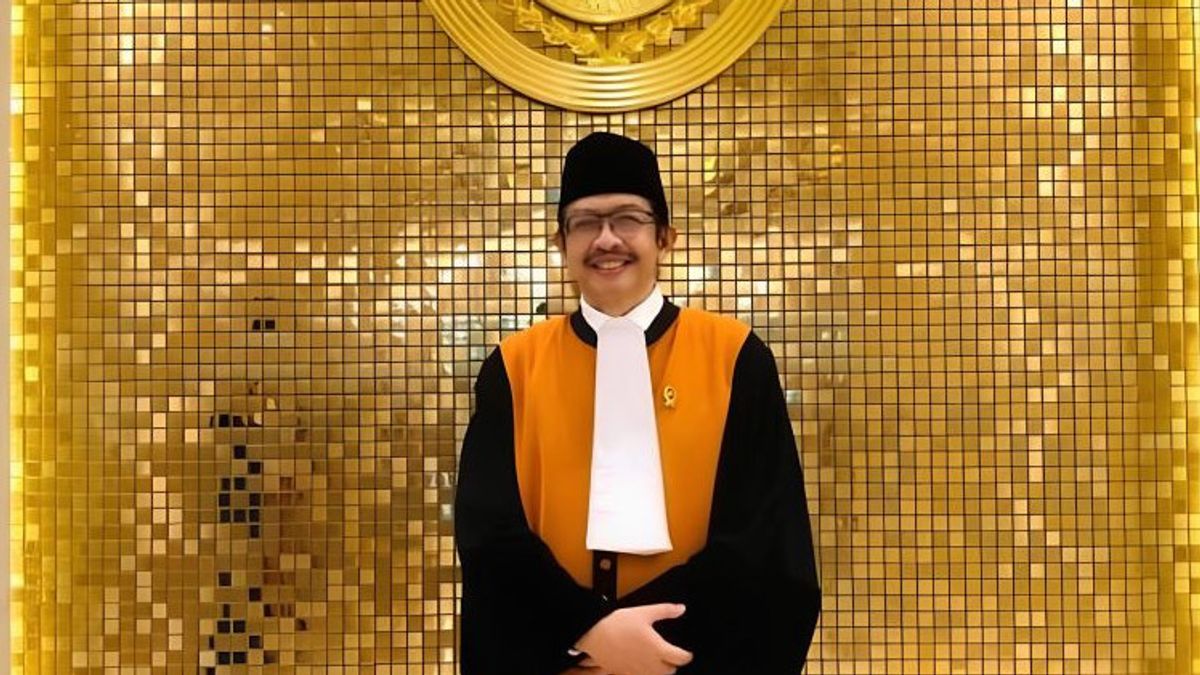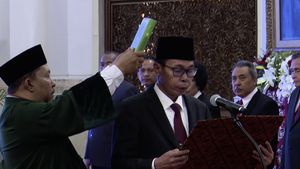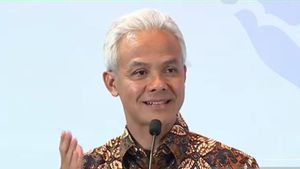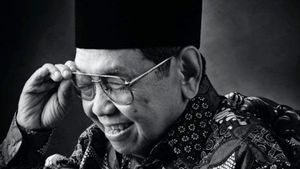JAKARTA - Supreme Court Judge Haswandi proposed the need for Police Justice and the execution of relations between law enforcement and judicial agencies to overcome the execution of decisions that have legal force which are often constrained by various things.
He put forward this proposal in inauguration as Professor or Professor of the Sultan Agung Islamic University, Semarang, Central Java on Sunday (26/11).
"A police unit that is specifically tasked with the interests of a judicial institution called police justice is needed," said Haswandi in a statement quoted by ANTARA, Monday, November 27.
According to him, the relevant problems in the judicial system in Indonesia include court decisions that already have legal force, which often experience obstacles during its implementation.
In fact, the government recognizes the weakness in the execution as one of the weaknesses in the civil law enforcement system in Indonesia.
Haswandi gave an example, in 2020, of the 2,896 execution requests submitted in the General Court, only 923 were successfully executed. In 2021, out of 3,372 applications, only 1,376 were successfully executed. In 2022, out of 3,926 applications, only 2109 were successfully executed.
"This data indicates that the execution has not yet reached the expected optimal level. Public awareness of the execution of court decisions, especially in civil cases, is still lacking," said Haswandi.
Regarding the issue of this execution, he said, the Supreme Court of the Republic of Indonesia and the Court under him so far do not have special security officers.
So far, Haswandi said that the practice of the need for judicial institutions to secure executions, court security and so on is very dependent on the good character of the police institution.
Therefore, he suggested the establishment of a police justice tasked specifically for the benefit of the judiciary.
Haswandi revealed that obstacles in the implementation of court decisions can come from various factors, both technical, juridical and non-technical. According to him, the execution process was carried out by force and the losers were required to comply with the court's decision.
If the party refuses to carry out the verdict, the court can ask the authorities for help. The general execution is related to a court decision that is a punishment or Condemnatoir, where the decision contains sanctions or punishments for those who lose the trial," he said.
SEE ALSO:
According to him, the slow implementation of the execution has also attracted the attention of the Supreme Court, which seeks to make improvements through internal regulations related to execution procedures as a short-term solution. However, more holistic and comprehensive improvements involving the Government, DPR, and Judicial Institutions are also needed.
"Among other things, the making of special laws and regulations regarding execution, as well as the formation of special units for execution at the Supreme Court which functions as the Central Autority for execution," he said.
Regarding this, legal practitioner Juniver Girsang assessed that Haswandi's idea was very appropriate for the existence of a police justice in the execution and others. Because, he said, the implementation of the decision was the end for people who seek legal justice.
"Because of the problems in the implementation of the decision as a final form of society seeking justice, it has always been an obstacle in carrying out the execution, which makes the justice-seeking community feel that there is no legal certainty," said Juniver, Chairman of Peradi SAI.
The English, Chinese, Japanese, Arabic, and French versions are automatically generated by the AI. So there may still be inaccuracies in translating, please always see Indonesian as our main language. (system supported by DigitalSiber.id)


















